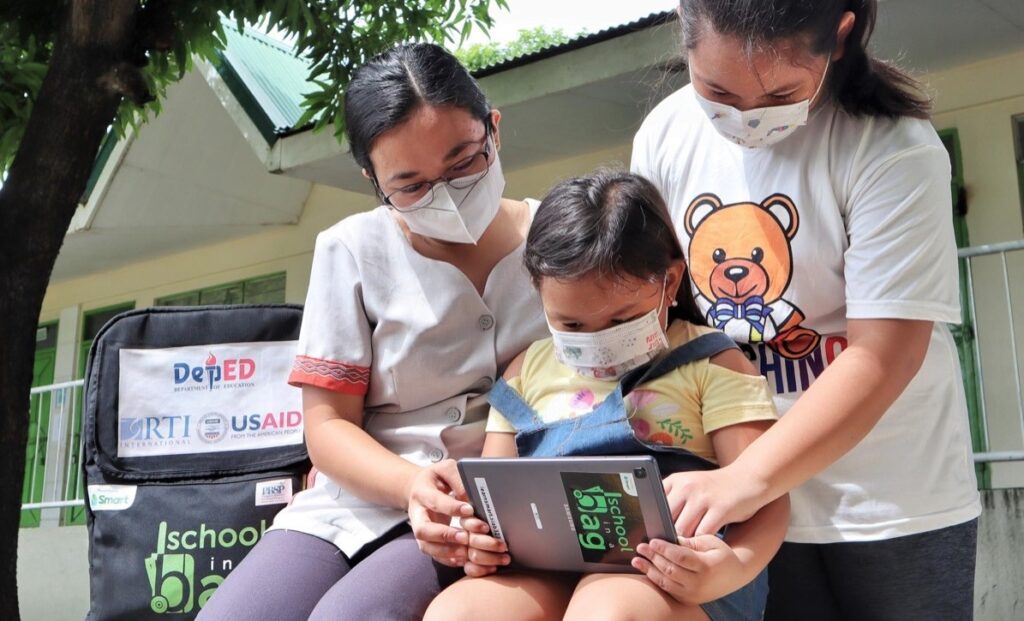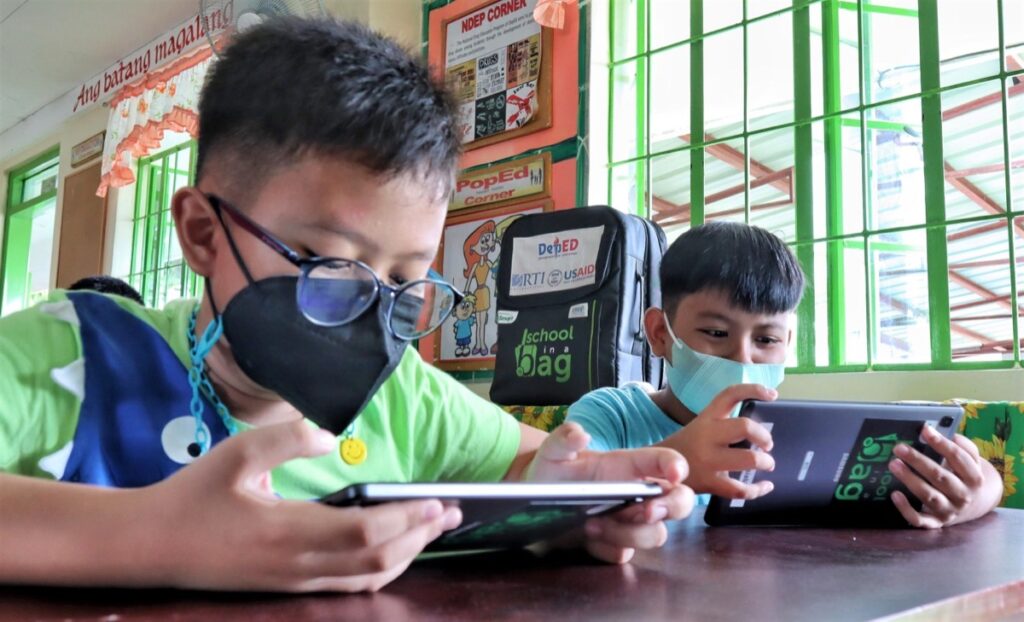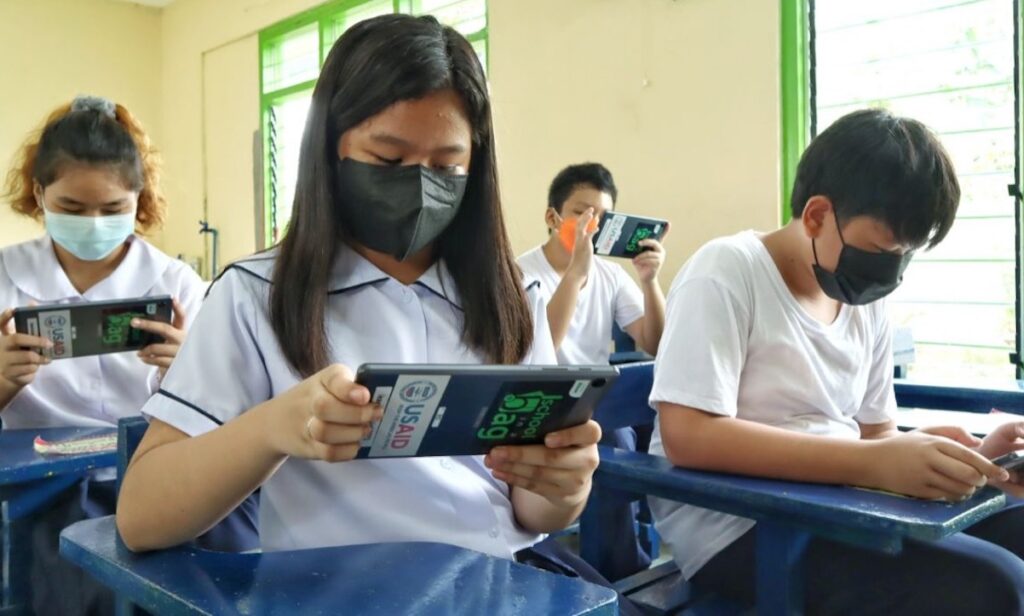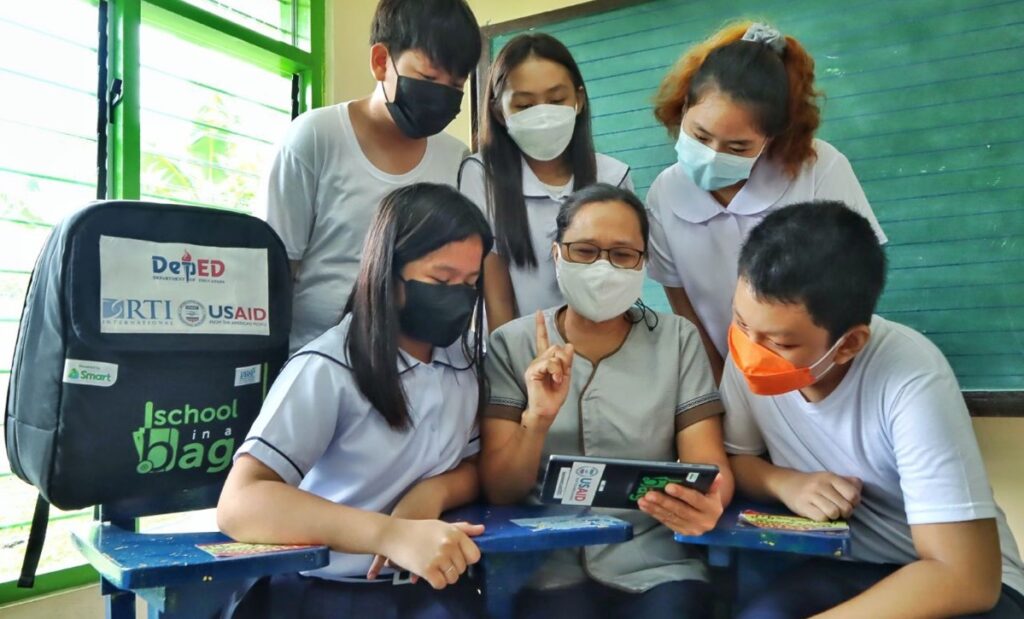Early learning “schools” are now portable in parts of northern and central Luzon.
PLDT and its wireless unit Smart Communications, Inc., with the United States Agency for International Development (USAID), have “put” schools in a bag.
Through RTI International, an independent, non-profit research institute dedicated to improving the human condition, PLDT and Smart, and their partners, are distributing to selected beneficiaries education tools and materials for teachers and learners that they have bundled together in a bag.
The School-in-a-Bag (SIAB) is a portable digital classroom that brings learning to last-mile or remote schools. It supports the Department of Education’s efforts to improve early grade education.
The portable school is the flagship education program of PLDT and Smart. Each SIAB contains a laptop for the teacher and tablets preloaded with #LearnSmart applications in the students’ mother tongue.
Also in the bag is a Smart LTE pocket WiFi kit that teachers can use to download additional educational materials.
But if connectivity is a problem in beneficiary schools, the package allows for learning content to be accessed even while offline. The material includes USAID’s All Children Reading eResource.
The School-in-a-Bag initiative is designed to support early grade learning across schools in northern and central Luzon.
PLDT and Smart, with long-time partner USAID, through RTI International, handed over recently one SIAB each to San Rafael Elementary School (SRES) in Tarlac City, Tarlac, and San Aurelio Elementary School (SAES) in Balungao, Pangasinan.
“Our students who don’t have the means to buy gadgets will have the opportunity to experience online learning through the tablets equipped with learning applications inside our School-in-a-Bag.”
—Rodolfo Caceres Jr., San Aurelio Elementary School principal
The school expected around 400 students to return this month for the limited in-person classes.
“The School-in-a-Bag supports our efforts to ensure that students, especially those who may not have access to gadgets, will have the opportunity to continue learning.”
—Hilda Dizon, San Rafael Elementary School – Grade 6 teacher
The SIAB expands the learning platform of SRES, which has more than 400 students from Kindergarten to Grade 6. The school has implemented limited face-to-face classes but still implements blended learning to reach students who may not be ready to participate in on-site educational activities.
USAID, through RTI International, is closely working with PLDT and Smart to distribute 100 SIAB packages in hard-to-access areas across the Philippines.
Even before the pandemic, the remoteness of these areas made it difficult to access educational resources available online, which could augment instruction in face-to-face sessions.
The School-in-a-Bag highlights PLDT and Smart’s commitment to ensure that there is #NoLearnerLeftBehind through Information and Communications Technology, content, pedagogy, and capacity-building.
The initiative and similar programs underscore the PLDT group’s commitment to help the Philippines achieve one of the United Nations Sustainable Development Goals (UNSDG), No. 4 on Inclusive Quality Education.











